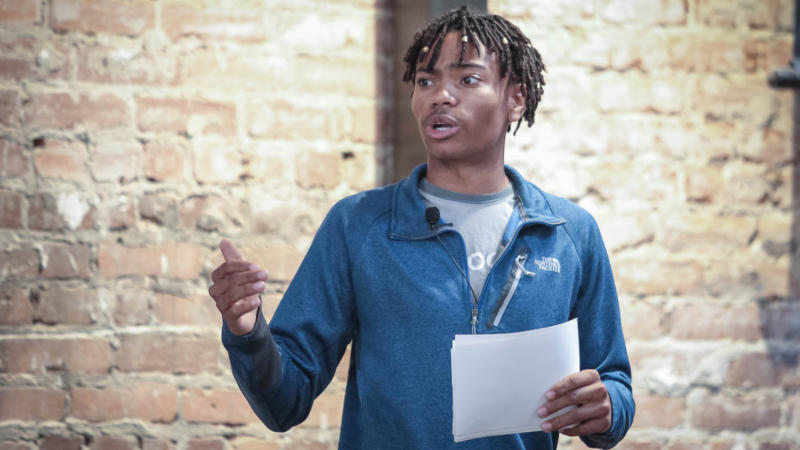When he was just 13-years-old, George Hofstetter was working as a sound technician at his local church. That same year, he was invited to his local Hackathon and brought his team to compete against Stanford’s best and brightest. With such an early interest in tech, it’s no wonder that he was able to host a TedTalk, start his own business, and create a life-saving app.
“GHTech, Inc., leads workshops on design thinking, radical social entrepreneurship, and presents keynotes on how to fight white supremacy through technology creation,” he told AfroTech. “We develop web & mobile app platforms centered around social justice as well as create free innovative online curriculums designed for students of color to bridge the ‘digital divide.’”
George Hofstetter doesn’t just talk the talk in tech — he actually walks the walk, specifically with his creation of the CopStop app. Currently available on the App Store, the CopStop app aims to diffuse those tense situations between Black men and women and the police that interact with them by serving as a “digital witness.” It records video, which is then stored on your phone (in case you decide to take it to court), when the cops pull you over. And if things get spicy between you and the police (and we all know that’s been happening far too often in recent years), it sends text alerts and emails to your designated contacts to let them know what’s going on.
While the initial app offered these basic benefits, the CopStop app has since been updated to offer additional benefits in the wake of the 2020 racial reckoning.
“I’ve taken a more hands-on approach to educate the youth of color on their rights and how to survive police encounters through the workshops we offer, as well as balancing my college coursework,” he said. “During my freshman year, I traveled to South Florida to lead a workshop at Colin Kaepernick’s Know Your Rights camp alongside a fellow alumnus from The Hidden Genius Project.”
Ultimately, Hofstetter says that tech development without social justice is regressive, not progressive. And it’s his hope that his work with GHTech, Inc., allows for that.
“In our workshops, we talk a lot about the issues students are dealing with in their community and unpack the root cause. Once we identify the issues at hand and then as a collective we brainstorm potential solutions and what resources (i.e. technology) we can leverage to implement them into the community,” he said.
Editorial note: Portions of this interview have been edited and condensed for clarity.

















